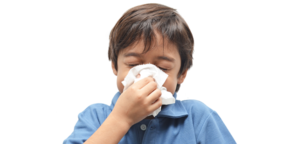10 Steps for Better College Student’s Health
College life has always proven to be a tough life for some students. The fact that one has to juggle between studying for their coursework and maintaining an active social life is likely to course a lot of anxiety. It is the main reason why many college students are unable to take proper care of their health. Frontline ER provides tips on how to remain physically and mentally healthy throughout the years in college.
Proper Meal Portion
Keep track of how much you are eating, regardless of whether you are at home or in a fast food restaurant. Avoid huge portions, even of the healthiest food. Your body only needs a little to fuel up. Eating large meals can lead to accidental weight gain.
Vary Your Meals
When the college cafeteria has some of your favorite foods, you end up getting used to them and lack a range of choices. Changing up your diet is good because you get to have several selections available to you. Incorporate fruits and vegetables in your daily diet. Once in a while, give yourself a break and indulge in something different.
Do Not Skip Meals
Begin each day with a good breakfast. Whether you are up for an early class or you’re rolling out of bed at noon, ensure that the meal is balanced and healthy. With so much to do, you may end up forgoing your meals. Have healthy foods handy that you can eat while on the run. You may be tempted to go for fast foods but make sure it doesn’t turn out to be a habit.
Drinks and Beverages
While college students are known for frequent partying, you can still enjoy yourself without binging on beer. Besides that, you can avoid hangovers and other adverse effects. FrontLine ER advises that, if you have to drink, do so in moderation.
Drink enough water to help boost your concentration as well as preventing you from overeating. Stay hydrated by carrying a water bottle with you always.
Limit caffeinated and sugary beverages as they can have a detrimental effect on your health. You do not have to give up on coffee or soda completely; however, you can scale back on your consumption to remain in good shape.
Exercise
Incorporating exercise into a hectic schedule isn’t always easy. Avoid injuries by stretching each time you go for a workout. According to FrontLine ER, stretching before and after an exercise keeps you active and free from pain.
You could also choose to ride a bike instead of driving or taking the bus to class. Take part in recreational sports or join a sports team in your school to get yourself motivated while having fun at the same time. Take advantage of the fitness courses available and head to the gym. You can choose to go every morning or in between classes.
Get Good Sleep
Most college students are known for their late nights or all-nighters. Getting a full nights rest is an integral part of staying healthy. You require 7-9 hours to feel fully rested. While this may sometimes be impossible every night, if you have time during the day, a short nap can do your body right. Do not work in bed as it will make it harder to fall asleep. You may feel like you want to study all night, but you are only doing yourself a disservice.
Sexual Health
College is where most students choose to discover their sexuality. Protect your health by testing for sexually transmitted diseases every year or as often as possible. The CDC recommends that you test after every three to six months. Enjoy the free or low-cost tests and HPV vaccinations available in the college. FrontLine ER recommends that, unless you are in a monogamous and long-term relationship with a partner who is STD free, always use protection to avoid the risk of contracting a disease.
Protect Your Self From Illnesses
With communal living and sharing of classroom space, there is a high chance of the spread of germs and viruses. Always wash your hands and wear flip-flops to the shower to avoid bacteria and viruses that can cause athletes foot or warts.
With so many germs around, if you have any symptoms that are not clearing up, visit the campus clinic or your doctor for checkups. You could also get a flu shot and ensure all your immunizations are up to date to prevent you from contracting illnesses.
Protect Your Self From Stress
With so much going on campus, from assignments to exams, stress can wear you down. Create a routine and put limits on your working hours. According to FrontLine ER, there should be time to have fun and relax too so that you don’t get sick. Giving yourself a break will help you feel rejuvenated and ready to tackle what’s ahead of you.
Care For Your Mental Health
College students are at high risk of having depression. By all means, focus on keeping yourself happy. Many people are ashamed to seek help for their depression, do not be afraid. Keep in touch with family and friends with whom you can share your concerns. Understand that fitting in could take time, therefore, establish new friendships gradually.




